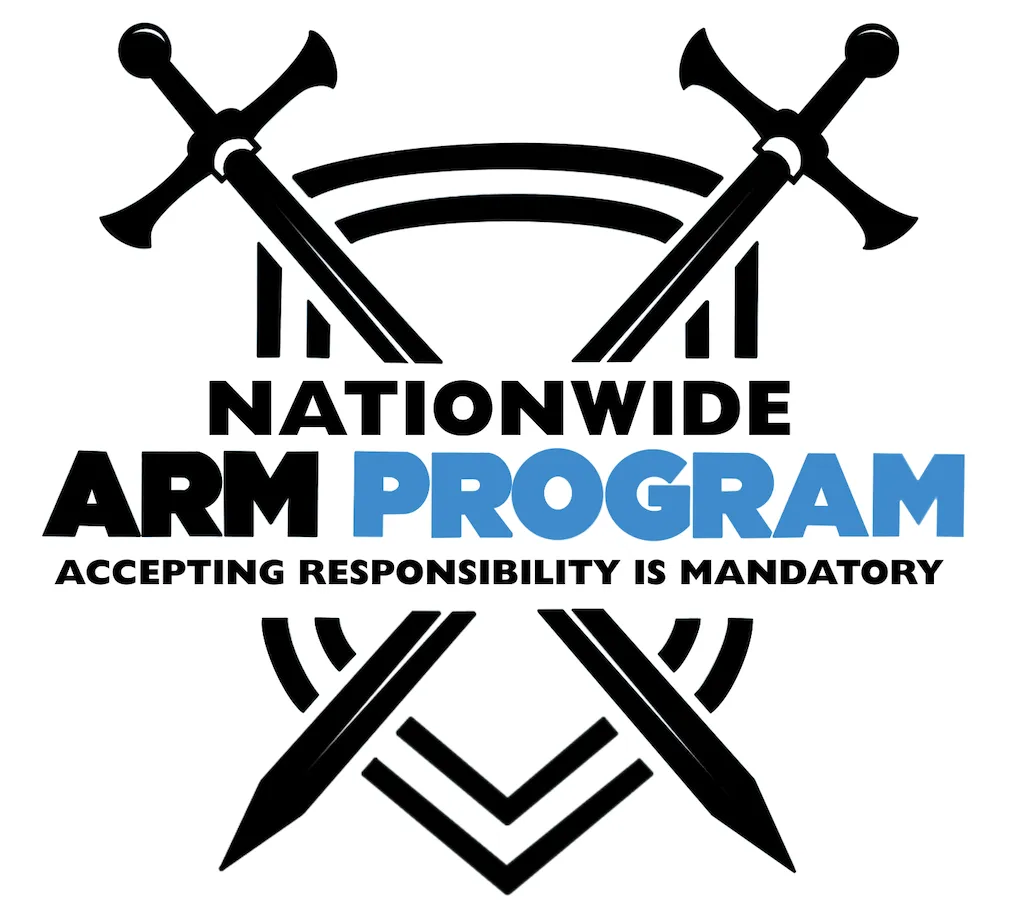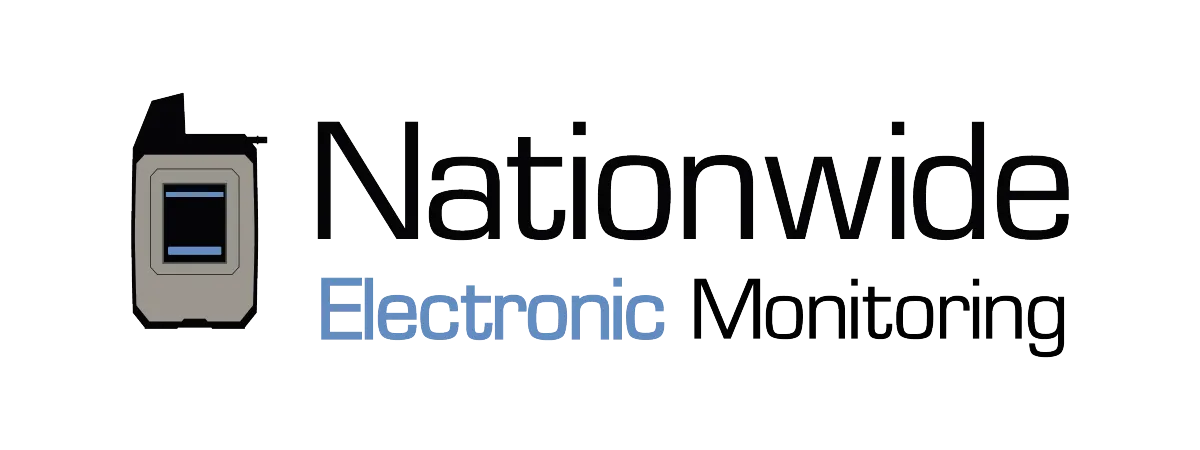NATIONWIDE ARM PROGRAM
Accepting Responsibility is Mandatory
1 & 2 Day Programs
1 Day Programs
Alcohol Awareness Program
AAP
The Alcohol Awareness Program provides an introduction to the negative effects that alcohol use can have on functioning. It is a one-day (six-hour) course designed to target defendants who have been convicted of alcohol-related offenses. The program can accommodate participants for whom alcohol use played a role in the primary offense; these may include domestic violence, theft, assault, child abuse/neglect and Malicious Destruction of Property. The Program provides a safe, non-judgmental environment in order to encourage participants to openly explore their behavior. Themes of personal accountability and positive change will be emphasized. The harmful effects of alcohol use on emotional and physical health, relationships, employment, family dynamics and legal status will be identified and reinforced. Participants will learn to recognize and understand the progressive nature of chemical dependency and techniques for breaking the cycle of addiction. The Program’s highly structured, interactive format emphasizes the important roles of goal setting and support systems on positive change.
eLearning Equivalent:
Driving Under the Influence
Anger Management Program
AMP
The Anger Management Program addresses the growing issue of destructive anger in society. It is a one-day (six-hour) course designed to target persons who have been convicted of legal offenses involving harmful expressions of anger. Examples include malicious destruction of property, reckless or careless driving (road rage), harassment and non-partner assault. The Program provides a safe, non-judgmental environment in order to encourage participants to openly explore their behavior. Themes of personal accountability and positive change will be emphasized. The harmful consequences of destructive anger on relationships, emotional and physical health, and legal status will be identified and reinforced. Participants will learn simple, proven techniques for self-management within a highly structured format.
eLearning Equivalent:
Anger Management
Drugs of Abuse Program
DOA
The Drugs of Abuse Program introduces the negative effects that illicit drug use can have on functioning. It is a one-day (six-hour) course designed to target defendants who have been convicted of drug-related offenses. The program can accommodate participants for whom drug use played a role in the primary offense; these may include domestic violence, theft, assault, child abuse/neglect and Malicious Destruction of Property. The Program provides a safe, non-judgmental environment in order to encourage participants to openly explore their behavior. Themes of personal accountability and positive change will be emphasized. The harmful effects of drug use on emotional and physical health, relationships, employment, family dynamics and legal status will be identified and reinforced. Participants will learn to recognize and understand the progressive nature of chemical dependency and techniques for breaking the cycle of addiction. The Program’s highly structured, interactive format emphasizes the important roles of goal setting and support systems on positive change.
eLearning Equivalent:
Substance Abuse
Driving While License Suspended Program
DWLS
A one-day course designed to target drivers identified as having received a driving while license suspended charge. This program provides participants with information and tools to help them understand the process through which a driver license is suspended, how to resolve outstanding court and state department responsibilities, and eligibility requirements for license reinstatement. The course will also address ways to prevent further infractions or penalties. Further discussion will help participants explore how attitude and behavior contribute positively or negatively to goal achievement. Motivation for positive change will be emphasized.
eLearning Equivalent:
Driver Responsibility
Holmes Youthful Trainee Act
HYTA
The HYTA Program focuses on reducing and eliminating both poor decision making and coping mechanisms which are associated with HYTA offenses. The HYTA Program will include topics on peer influences, successful decision making skills, problem solving, taking responsibility, and the results from these behavior changes. As a last part of this class, members will also work on developing a few short and long term goals. This is designed to assist them in forward thinking and developing a plan (much like problem solving) to increase their chances of success. Topics to be included will be the circle of influence, needs-profile assessment, human needs pyramid (see attachments). This class will also discuss the life long consequences and impact for those who fail to take a HTYA plea such as career and school scholarships and the creation of a criminal history.
eLearning Equivalent:
not available
Parenting Support Program
PSP
Our program is designed to enhance parental motivation and increase knowledge of parenting skills, family life, and the influence drug/health issues have on the family unit. The ultimate goal of the Parenting Support Program is to improve parenting and family functioning for a more global improvement of the family environment. The Parenting Support Program is a parenting intervention designed to be compatibly used in conjunction with any standard court-mandated programs. The Parenting Support Program was designed with the recognition that parents come to us with a variety of issues, concerns, beliefs, and a full history of experiences. Most of the participants will be entering the course as part of a court order due to an offense within the legal system. It is our hope that parents will experience a place of support, new ideas, and renewed motivation to be their best selves to reach their personal parenting goals.
eLearning Equivalent:
Parenting
Theft Awareness Program
TAP
The T.A.P. Program is an economic crime intervention course primarily designed for the offender who engages in shoplifting, embezzlement, larceny, or similar crimes at the misdemeanor level. Economic crime offenses have placed a tremendous burden on society, the courts, and the offender alike. In the area of shoplifting in the United States alone, more than 10 million people have been caught engaging in this crime in the last 5 years. Studies suggest that 1 out of 3 shoplifters will repeat the offense despite having gone through our judicial system and facing the consequences therein. While this information is staggering in and of itself, retail employees steal three times more than shoplifters. Effective educational intervention has been shown to decrease the recidivism numbers for these offenders. The primary goal of our T.A.P. Program is to assist the offender in exploring the following areas through the 4 A’s (awareness, acceptance, accountability, adaptability) as a way to reduce risk for recidivism.
eLearning Equivalent:
Theft/Shoplifting
Traffic Safety Program
TSP
A one-day course that targets drivers identified as having dangerous/aggressive behaviors on the road. The program provides participants with tools to aid them in modifying risky choices which result in negative consequences for themselves or others, thereby saving lives. The program is designed to address driver improvement utilizing criteria consistent with the expectations of court entities as well as the Michigan Secretary of State. The program provides a safe, non-judgmental environment in order to encourage participants to openly explore their behavior. Using a highly structured format, participants will be provided with education opportunities in the following areas: Self-assessment. Impact. Alternatives. Skills. Specific road hazards and the rules of the road will be discussed. Legal/legislative. License Suspension.
eLearning Equivalent:
Driver Responsibility
2 Day Programs
Decision Pathways Program
DPP
The Decision Pathways program is offered by the ARM Program to address concerns associated with non violent offenders behavioral and decision making issues. The purpose of this program is to provide those who have been charged with crimes an opportunity to address issues in a supportive environment. Our objective is to aid them in sustaining changes made as a result of both court and psycho-educational interventions. Topics will include, but are not limited to attitudes, criminal personalities, Stages of Change, decision making skills, goal setting, and employability. Individuals completing this course have the potential to learn the skills necessary to make more positive life choices with a goal of reducing recidivism as well as improving their overall lifestyle.
eLearning Equivalent:
Cognitive Awareness & Personal Responsibility
Theft Awareness Program
TAP-2
The T.A.P. Program is an economic crime intervention course primarily designed for the offender who engages in shoplifting, embezzlement, larceny, or similar crimes at the misdemeanor level. Economic crime offenses have placed a tremendous burden on society, the courts, and the offender alike. In the area of shoplifting in the United States alone, more than 10 million people have been caught engaging in this crime in the last 5 years. Studies suggest that 1 out of 3 shoplifters will repeat the offense despite having gone through our judicial system and facing the consequences therein. While this information is staggering in and of itself, retail employees steal three times more than shoplifters. Effective educational intervention has been shown to decrease the recidivism numbers for these offenders. The primary goal of our T.A.P. Program is to assist the offender in exploring the following areas through the 4 A’s (awareness, acceptance, accountability, adaptability) as a way to reduce risk for recidivism.
eLearning Equivalent:
Theft/Shoplifting & Personal Responsibility
eLearning Programs
All classes & more (except HYTA) are also available to be taken online at your own pace.
Payment Details
$80
DWLS, HYTA, TSP
$100
AAP, AMP, DOA, PSP, TAP
$105
eLearning Courses
$210
2 Day Classes
Payment is due 2 weeks prior to your scheduled program.
Please Note: Failure to make payment 2 weeks prior to your program will result in being removed from the class list, and a $25 processing fee will be incurred to be added back to the class list.
$25 Rescheduling Fees are due upon rescheduling prior to the program.
Failure to show to your scheduled program will result in having to pay for the program again.
Arm yourself with an alternative that makes sense
Call 248-851-5556
nationwideARMprogram@nationwideinterlock,com
Corporate Headquarters
2175 Stephenson Highway
Troy, MI 48083



